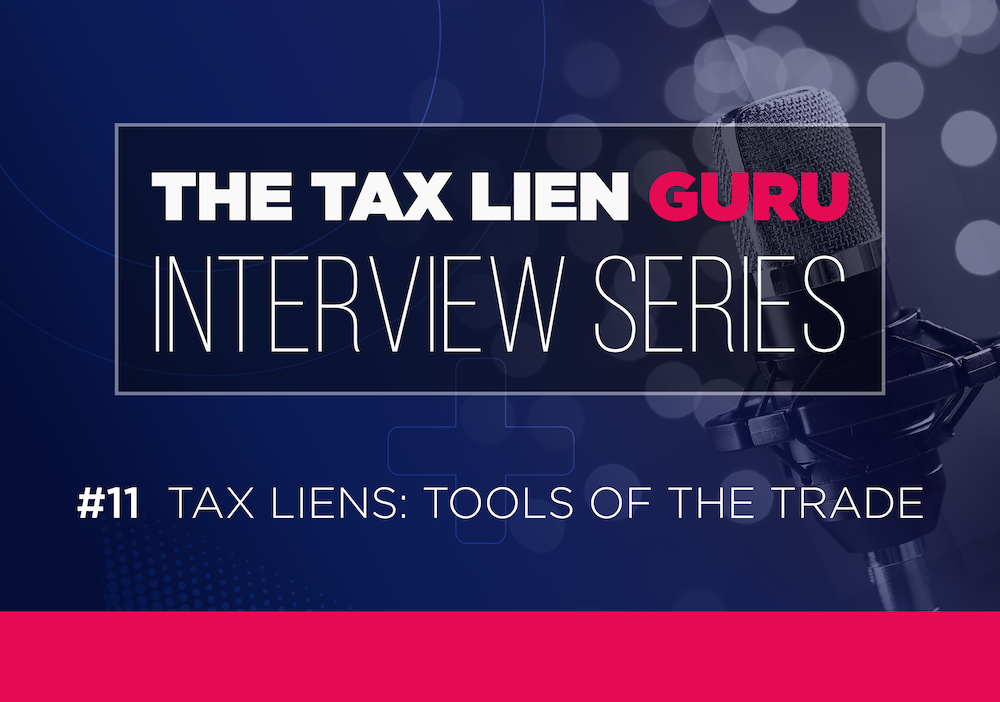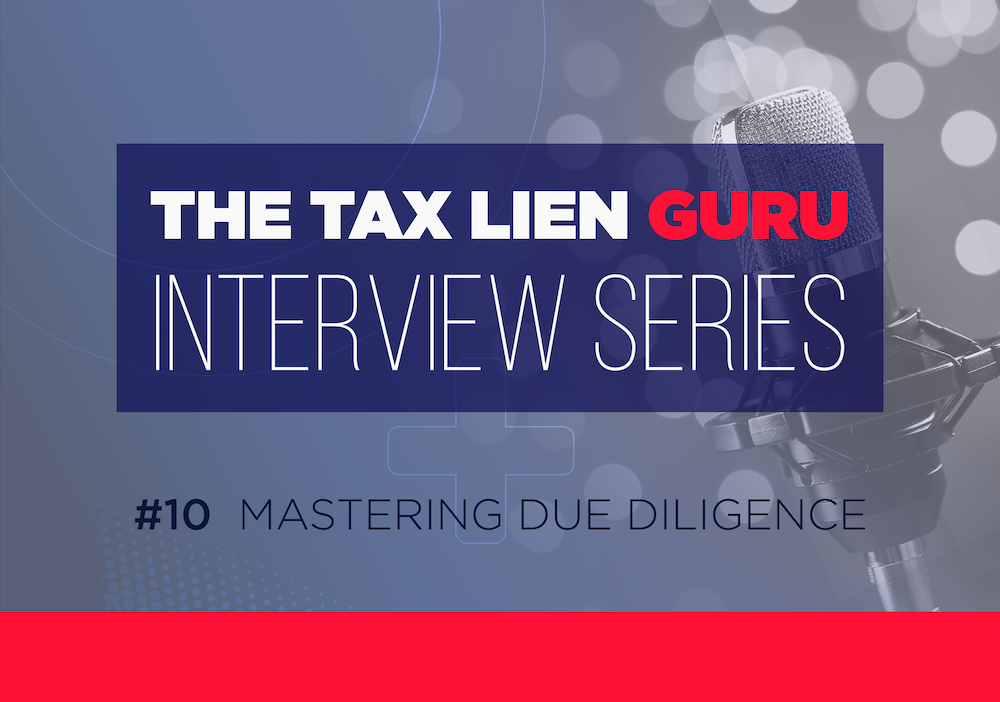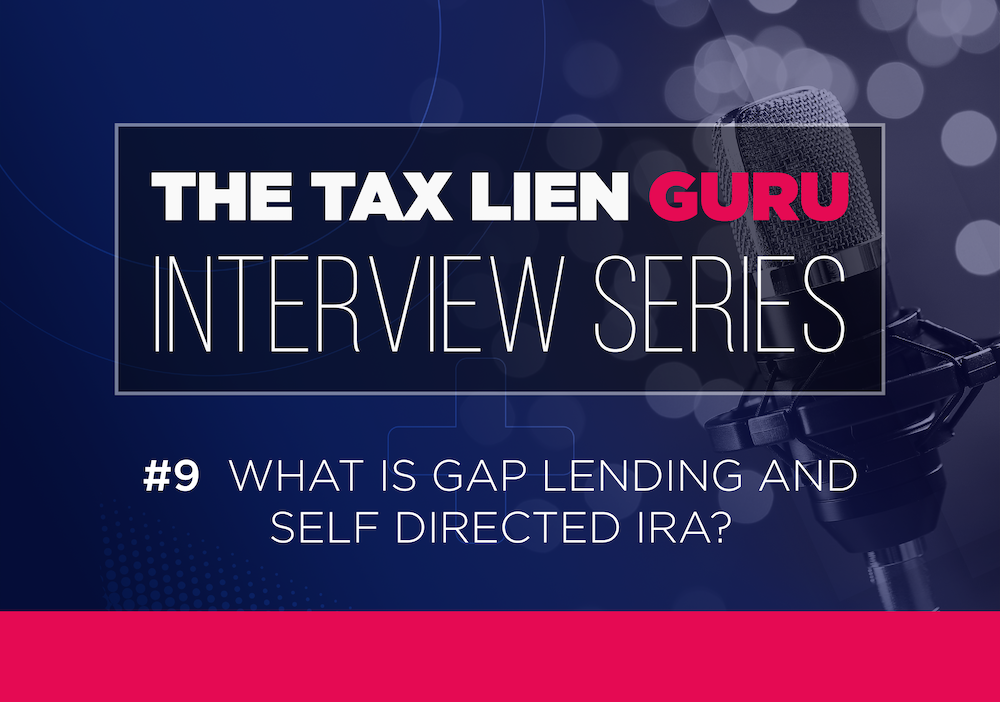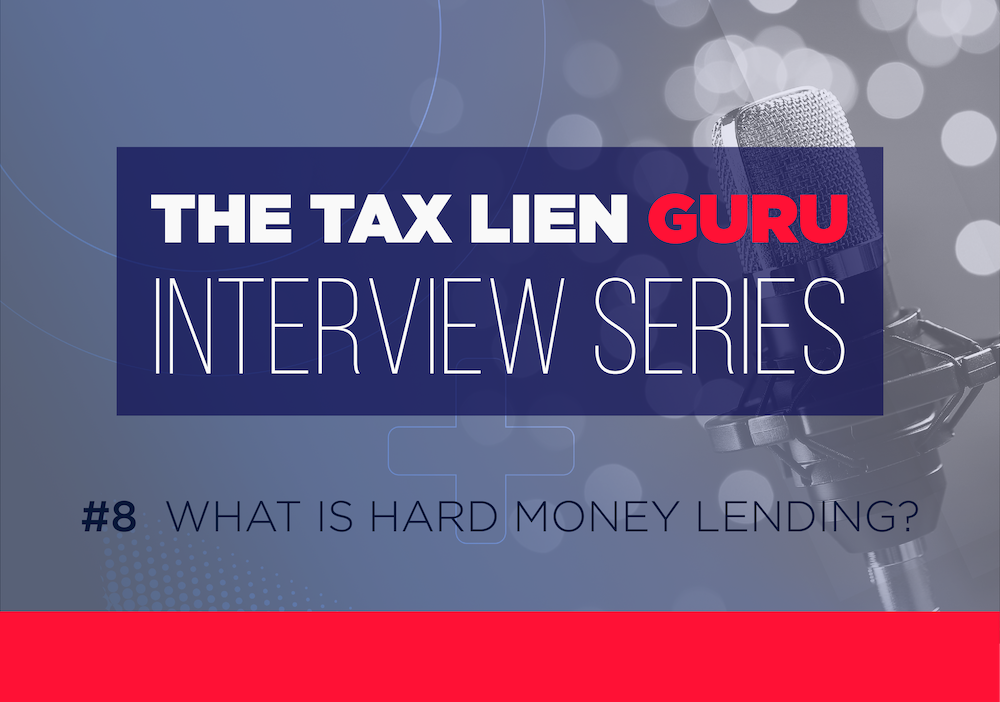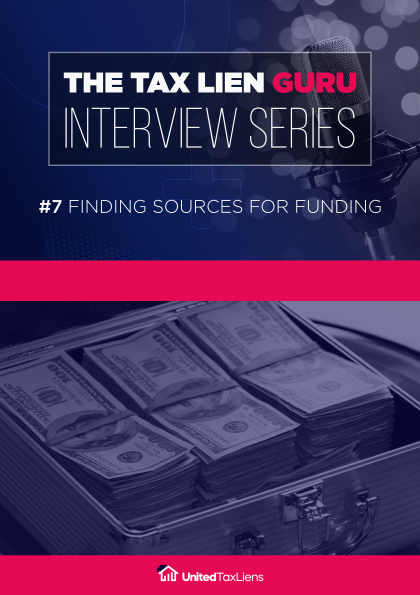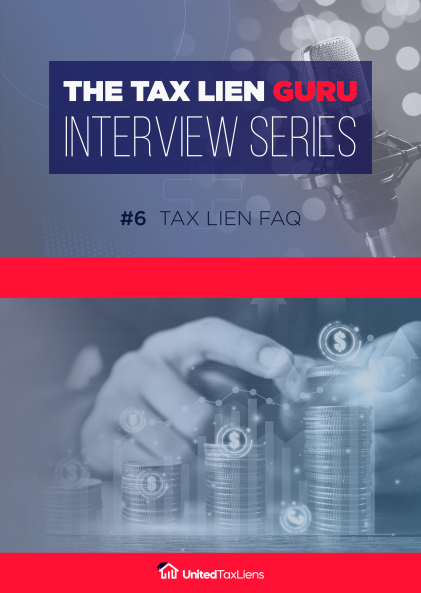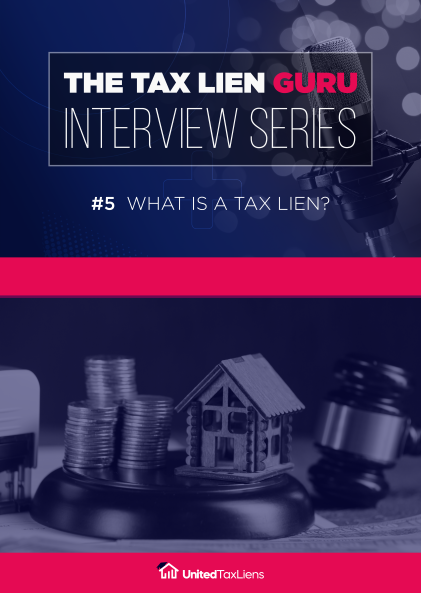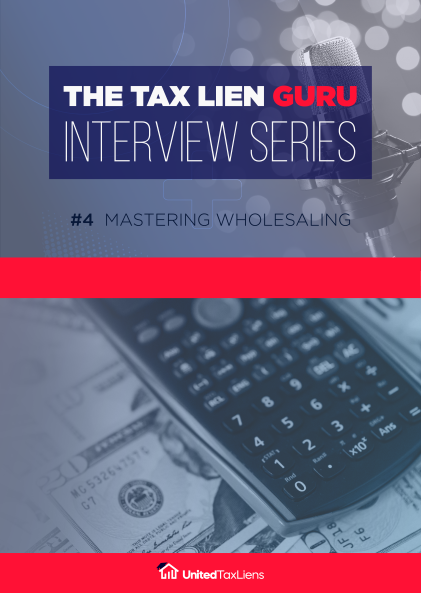Eric, I hear a lot about wholesaling as a real estate investment strategy. Tell me about wholesaling.
Who doesn't love a great deal, right? So, first off, I think wholesaling is a big scary word for many new investors. Or if you've never done it before, it's like ooh, how do I do a wholesale? And you're like, is that even legal? Well, of course, it is! Let's talk about how you can move forward with a wholesale deal. First off, what do you need to make a wholesale deal work? It's really only two things. It's a property, and it's a wholesale buyer. It's that simple. All you do is identify the property, put a contract on it, and then have your wholesale buyers step in. It is that simple.
And so, let's talk about some of the tools that will help you out when it comes to wholesale buyers and completing a successful wholesale deal. It's OK to have a little bit of fun with this. So let's talk about: how do you find wholesale buyers. So think about it for a moment; where do you go to be surrounded by other potential investors. One of the best places that you will go to will be to meetup.com, which lists all of the local real estate investment clubs out there and available. You might as well go there because anyone who is attending could be a wholesale buyer for you.
What about Craigslist, is using that as a tool a viable strategy?
Absolutely you could utilize Craigslist. Anyone who is listing properties, you can tell them: I buy houses, I buy properties, I pay cash for houses. Or maybe you get something in the mail that says they want to buy your home. They could be a wholesale buyer for you. So really, anyone involved in real estate wants a deal because all we're doing is identifying the deal and then passing it along to another investor to complete the sale.
Whether we identify a property as great as rental, and then we build ourselves in on the wholesale side of things, then we pass that along to purchase it or use it as a rental, that's great. Or we identify a property that's an excellent flip, and then we go ahead and take our portion for the wholesale fee, then we let that other investor finish it out.
What about other forms of social media?
That allows us to finish that deal. Now, other places that we can find wholesale buyers. Think about it, social media. Have you ever been on social media, and you've seen people who have their real estate business on it, where it's like for all your real estate needs? You can even create your own social media. To have a social media page, it doesn't even cost you anything. You can pay to advertise and market on those platforms, but that's a great resource you should plan to use as you move your investment business forward.
So where else are you going to go to find your wholesale buyers? So think about this. You can even put up bandit signs to find them. Or even call on the bandit signs that are out there. Because their buyers as well. It's really limitless. And what you want to do is go create a list. Create a list of 20 or more wholesale buyers. And then what you want to do is you want to prioritize them, from the best to the worst. And when I say best to the worst, it is: you want to quantify these wholesale buyers.
And what this means is, you prioritize them. OK, well, do they have cash and are they ready to close immediately? What area do they like to focus on? What type of properties? “It's a 3 bedroom two bath in Garfield city is where I'm mostly interested in” they may tell you. So you want to find out all of those things up front, and then you want to let them know. So if I bring you the best deals that I have, you're going to be able to take action on them–how quickly. And you want to be able to find that out so you can prioritize that. If an investor comes back to you and says: I can be a cash buyer in thirty days! That means they are waiting on getting financing which is not a horrible thing, but that delays the process for us.
Can you tell us a little about the process of contracts in the wholesale process?
Absolutely. This is where I think a lot of the confusion comes, when it comes to wholesaling. There really are only two ways to do a wholesale deal. One way is through a simple assignment. Another way is through a double closer. Now I will talk about the assignments in a second. But a double closing is simply—I think some investors get a little bit scared of that because they believe it's a dual contract. No, it's not a double contract, that's illegal. That means you have one contract that goes to a bank, for the financing and then you have another contract that goes to the deal, with the intent of defrauding the lender. That's a double contract. That's illegal.
But what we're talking about is a double close. All that means is that you're buying and selling it on the same day. Let's talk about the assignment first. You may have seen in a contract where it says someone's name and it says: and/or/assigns. So if I put coach Eric, and/or/assigns that means I could sign that contract to whomever I choose and they could fulfill the terms of that contract. And then I could go ahead and put an assignment fee on that, to where if I felt that the value was there that I could go ahead and make 10,000 on that deal, then I could put in a 10,000 assignment fee, that new buyer would step in, they would fulfill the contract, I'd be out of the picture and that's a great pay day.
What about assignment fees
You should ask yourself: what is a typical assignment fee? That's dependent upon you and the deal. Find out how much room is in it. If there's an extra room in it, charge more! If there's not as much, and you don't spend as much time on it, charge less! And so in looking at it, it really is that simple, and you could use a title company to help you with the process. You definitely want a title company to help you with the process. You want a title company that understands how to process, even a simple assignment. That way they can make sure that everything is taken care of, the process is followed, and the money comes to you, the way you want it to come to you.
So that's a simple assignment.
And what about double closing?
So a double close does tend to be a little more costly. Because when I say you're buying it and selling it, you're buying it and selling it either on the same day or simultaneously. You're going to end up paying closing fees on the purchase or closing fees on the sale. So there's more cost that comes to it. But it is worthwhile to understand the ins and outs of both the wholesale processes and then make sure you have a team and make sure you have a title company that knows how to process wholesale deals. Make sure you have real estate agents that know how to process real estate deals.
Because they will come back and say, you can't do that, that's illegal. Well no it's not. A lot of times they'll say, this is not assignable unless it's in writing. OK well, then put it in writing that it's assignable. That's a simple way to get around that. So with that being the case, that's a quick introduction to wholesale; you want to be aware of your local laws and state laws regarding wholesaling. That's why you wanna have great team members, that's why you want to go and check out your real estate investment clubs when it comes to wholesales and the right team to help you with it. And again there's only two things you need. You need a property, and you need a wholesale buyer. This is a quick way to get to cash.
Eric, in talking about wholesaling, there's a concept that I want to talk to you about. The value is now in the contract. And I think people get lost a little bit on wholesaling, and we scare real estates agents when we're selling a property, when what we're really doing is: that piece of paper now has value. Talk to me about that.
Well, I like how you brought up that the real estate agent has a concern for that. Because I think the first concern that comes up for real estate agents is: am I going to get paid on this. But in all reality that contract stays the same way. You're just changing one person's name to another name, or one entity to another entity.
So as I look at that, I've got this piece of paper and that's what I'm assigning to someone else. I'm not really passing that home on, I'm passing that piece of paper. Right?
Yeah. In a simple assignment you're just passing the contract along.
Depending on how you're doing the deal that's when we start looking at wow, I have to actually close on this property, and pass it one to someone else and sell it on the same day.
Yeah, that's when you will actually make the purchase on that double close. You'll buy it from the seller, it will be in your name for a concise period of time, and then it goes on to the new buyer. And so that is essentially the difference between the two. They're both wholesales, but that's your process when it comes to buying and selling on the same day.
Excellent. Another thought process is, let's suppose we are looking at a property and we're willing to offer 200,000 for it and it's a fix and flip. What if we are going to offer 180,000 on it, just to be good on my offer, and it's accepted. Is that when I find out it's an opportunity for a wholesale deal?
Well of course, because you're picking it up for 20,000 under the price right? And so potentially, you may have someone who would be willing to pay 190,000 for it, and you could do a simple assignment for them for 190,000. They're getting a 10,000 deduction on the price, and you'd be getting a 10,000 wholesale fee.
So would you say that there is a reward for making good and aggressive offers? Because then you say wow you took that price, that's less than what I would pay for it. Now I have a choice, do I want to do the deal myself, or am I gonna wholesale?
I think you're onto something, because, in all reality as a new investor or even upping your game and getting into wholesales, it's like, we kinda have this thing in our mind where it's like: are those deals really out there? And, they are if we create them. We always have to remember that we don't ever get what we don't ask for. We have to be in the place where we ask for the deal, we have to make that aggressive offer that works for us. Because in all reality, if we make an offer, it has to work for our goals, it has to work for our time, or we can't do it.
So part of being an investor is understanding your skillset. If you're committed to getting people to sign the contract and making that deal, there's real value in that when you're a wholesaler.
That's correct. It's all about identifying the deal and understanding your market and taking action on it.


